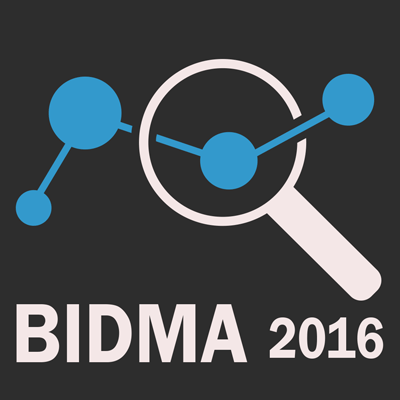- Dr. Kristin M. Tolle, Director of the Data Science Initiative in Microsoft Research Outreach
Abstract
In this talk I will discuss the concepts of big data and data science and how they can be facilitated by using the Cloud. The context will be set by a recent public/private/academic partnership called the National Flood Interoperability Experiment (NFIE). This project, which ties together multiple academic institutions, research laboratories, government agencies and industry partners is an excellent exemplar of how these organizations can work together to solve some of the world’s most challenging problems—in this instance, protecting our lives and our livelihoods from flood disasters.
Short Bio
Kristin M. Tolle is the Director of the Data Science Initiative in Microsoft Research Outreach, Redmond, WA.
Since joining Microsoft in 2000, Dr. Tolle has acquired numerous patents and worked for several product teams including the Natural Language Group, Visual Studio, and the Microsoft Office Excel Team. Since joining Microsoft Research’s outreach program in 2006, she has run several major initiatives from Biomedical computing and environmental science to more traditional computer and information science programs around natural user interactions and data curation. She was also directed the development of the Microsoft Translator Hub and the Environmental Science Services Toolkit.
http://research.microsoft.com/en-us/people/ktolle/
Improving Drilling Efficiency Through Cloud-based Computing, Machine Learning and Multilevel Modelling
- Dr. Sean D. Kristjansson, Research Advisor, Data Analytics - Pason Systems Corporation
Abstract
Our research group’s longer term goal is to create a state-of-the-art “Informatics Cloud” with real-time updating to provide new insights, consolidated knowledge and decision-making products to the land- based oil and gas well drilling industry. In one of our initial projects, we developed a machine learning method that extracts information from a group of previously-drilled wells (i.e., a well-pad) in order to optimize drilling efficiency in the next well to be placed on that pad. This method has been deployed in the field, and results suggest substantial efficiency gains. In the first part of this talk, we provide an overview of the machine learning algorithm and how insights generated by the algorithm are deployed to the rig site. In the second part of this talk, we discuss efficiency gains from all trial wells to date. We also discuss results from a prototype multilevel model, where we more precisely quantify efficiency gains and begin to investigate why some of the trial wells achieve larger gains compared to others. We plan to place this component into an automated, closed loop system such that insights gleaned from the multilevel models will be used to tune the machine learning algorithm.
Short Bio
Dr. Kristjansson earned his Ph.D. from the University of Utah in 2005, completed post-doctoral training
in Statistical Genetics at Washington University School of Medicine in 2008 and held a faculty position
there until 2013. Dr. Kristjansson is author or co-author of 25+ publications in peer- reviewed journals in
Genetics and biomedicine. Prior to transitioning to industry in 2013, Dr. Kristjansson was recruited by
the National Institutes of Health to develop software tools for statistical genetic analysis of large-scale
brain networks. His current work involves developing end-to-end (raw data-to-decision tool) systems for
large datasets in cloud environments, with a specific focus on systems for the oil and gas industry.
http://www.pason.com/
Big Data Management beyond the hype: Case of developing economies
- Dr. Amir Albadvi, Tarbiat Modares University
Abstract
Data science applications and analytics have received enormous attention. In this talk, I set out to look beyond the hype to understand exactly how the technology can create real economic value, especially for organizations operating in developing economies. Our central finding is that the hype may actually understate the full potential of the big data management-but that capturing the maximum benefits will require an understanding of where real value can be created and successfully addressing a set of management issues, including interoperability to truly embrace data-driven decision making. There is large potential for big data technologies in developing economies.
Short Bio
Dr. Albadvi holds BSc and MSc in Industrial Engineering from Sharif University of Technology. He graduated
from London School of Economics (LSE), UK in 1997 with PhD in Information Systems. His teaching experiences
include courses for MSc and PhD programs in Information Technology, Customer Relationship Management
(CRM), Internet Marketing, Change Management and Research Method. In addition to TMU, he is an affiliate
Professor in e-strategy in the Graduate School of Management and Economy of Sharif University of
Technology, taught as Professor of IS/IT in the Joint MBA Program in Marketing & e-Commerce for Lulea
University of Technology in Sweden and also in full-time and part-time MBA programs of University of Victoria.
He has over 20 years of experience in Information Systems research and practice in technology-driven change
management and e-strategy. Dr. Albadvi has conducted extensive research work in IS/IT especially in emerging
economies and has published a number of award-winning articles in international conference proceedings. He
has extended his research experiences as visiting Prof. at Sauder School of Business, UBC during 2009-2010.
His areas of research are e-Business; relationship marketing and CRM and quantitative modelling for Customer
Life-time Value (CLV), optimization of Customer Equity (CE) and Data Analytics and its impacts. He has over 175
publications in many esteemed journal in the area of information systems, business and marketing and
operations research.
Dr. Albadvi also has reputable experiences as management consultant in externally sponsored-research in the
area of technology-driven change and value creation for different sectors like automotive, banking and
insurance, Tax and Telecom industries. His main applied focus is on how IT/IS capabilities of the firm can
transform or create new strategies.



